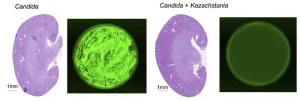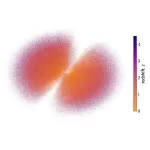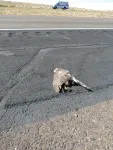(Press-News.org) Researchers at the Weizmann Institute of Science in Israel have identified a yeast that could be used to prevent invasive candidiasis, a major cause of death in hospitalized and immunocompromised patients. The study, to be published March 18 in the Journal of Experimental Medicine (JEM), shows that the novel yeast lives harmlessly in the intestines of mice and humans and can displace the yeast responsible for candidiasis, Candida albicans.
Millions of microbial species live within or on the human body, many of them being harmless or even beneficial to human health. The microscopic yeast C. albicans is commonly found in the intestines and other mucosal surfaces of the body and is usually benign, though occasionally it may overgrow and cause superficial infections commonly known as thrush. Under certain circumstances, however, the yeast may penetrate the intestinal barrier and systemically infect the blood or internal organs. This dangerous condition, known as invasive candidiasis, is commonly seen in healthcare environments, particularly in immunocompromised patients, with mortality rates of up to 25%.
While studying yeast infections in laboratory mice, Steffen Jung and colleagues at the Weizmann Institute discovered that some of their mice carried a novel species of yeast that prevented the animals from being infected with C. albicans. The new species, which the researchers named Kazachstania weizmannii, is closely related to yeast associated with sourdough production and appears to live innocuously in the intestines of mice, even when the animals are immunosuppressed.
The researchers found that K. weizmannii can outcompete C. albicans for its place within the gut, reducing the population of C. albicans in mouse intestines. Moreover, while C. albicans can cross the intestinal barrier and spread to other organs in immunosuppressed mice, the presence of K. weizmannii in the animals’ drinking water significantly delayed the onset of invasive candidiasis.
Notably, Jung and colleagues also identified K. weizmannii and other, similar species in human gut samples. Their preliminary data suggest that the presence of K. weizmannii was mutually exclusive with the presence of Candida species, suggesting that the two species might also compete with each other in human intestines.
“By virtue of its ability to successfully compete with C. albicans in the murine gut, K. weizmannii lowered the C. albicans burden and mitigated candidiasis development in immunosuppressed animals,” Jung says. “This competition between Kazachstania and Candida species could have potential therapeutic value for the management of C. albicans–mediated diseases.”
Sekeresova Kralova et al. 2024. J. Exp. Med. https://rupress.org/jem/article-lookup/doi/10.1084/jem.20231686?PR
# # #
About Journal of Experimental Medicine
Journal of Experimental Medicine (JEM) publishes peer-reviewed research on immunology, cancer biology, stem cell biology, microbial pathogenesis, vascular biology, and neurobiology. All editorial decisions on research manuscripts are made through collaborative consultation between professional scientific editors and the academic editorial board. Established in 1896, JEM is published by Rockefeller University Press, a department of The Rockefeller University in New York. For more information, visit jem.org.
Visit our Newsroom, and sign up for a weekly preview of articles to be published. Embargoed media alerts are for journalists only.
Follow JEM on Twitter at @JExpMed and @RockUPress.
END
Newly identified yeast could prevent fungal infections by outcompeting rivals, study suggests
2024-03-18
ELSE PRESS RELEASES FROM THIS DATE:
NIH studies find severe symptoms of “Havana Syndrome,” but no evidence of MRI-detectable brain injury or biological abnormalities
2024-03-18
EMBARGOED FOR RELEASE
Monday, March, 18,2024
10 a.m. EDT
Contact:
NIH Office of Communications and Public Liaison
NIH News Media Branch
301-496-5787
NIH studies find severe symptoms of “Havana Syndrome,” but no evidence of MRI-detectable brain injury or biological abnormalities
Compared to healthy volunteers, affected U.S. government personnel did not exhibit differences that would explain symptoms
Using advanced imaging techniques and in-depth clinical assessments, a research team at the National Institutes of Health (NIH) found no significant evidence of MRI-detectable brain injury, nor differences in most clinical measures compared to ...
Clinical, biomarker, and research tests among US government personnel and their family members involved in anomalous health incidents
2024-03-18
About The Study: In this exploratory study, there were no significant differences between individuals reporting anomalous health incidents and matched control participants with respect to most clinical, research, and biomarker measures, except for objective and self-reported measures of imbalance and symptoms of fatigue, posttraumatic stress, and depression. This study did not replicate the findings of previous studies, although differences in the populations included and the timing of assessments limit direct comparisons. ...
Neuroimaging findings in US government personnel and their family members involved in anomalous health incidents
2024-03-18
About The Study: In this exploratory neuroimaging study, there were no significant differences in imaging measures of brain structure or function between individuals reporting anomalous health incidents and matched control participants after adjustment for multiple comparisons. U.S. government personnel stationed internationally have reported anomalous health incidents, with some individuals experiencing persistent debilitating symptoms.
Authors: Carlo Pierpaoli, M.D., Ph.D., of the National Institute of Biomedical Imaging and Bioengineering in ...
Can used coffee grounds help clean up environmental toxins?
2024-03-18
Global coffee consumption generates millions of tons of spent coffee grounds each year, which can be damaging to wildlife and the environment. However, new research published in the Journal of Chemical Technology and Biotechnology reveals that spent coffee grounds could be repurposed to act as a powerful adsorbent of bentazone, a herbicide commonly used in agriculture that is highly neurotoxic.
In the study, investigators found that when they used zinc chloride to activate the carbon from spent coffee grounds, the activated carbon showed a 70% efficiency in bentazone removal. ...
Largest-ever map of universe’s active supermassive black holes released
2024-03-18
Astronomers have charted the largest-ever volume of the universe with a new map of active supermassive black holes living at the centers of galaxies. Called quasars, the gas-gobbling black holes are, ironically, some of the universe’s brightest objects.
The new map logs the location of about 1.3 million quasars in space and time, the furthest of which shone bright when the universe was only 1.5 billion years old. (For comparison, the universe is now 13.7 billion years old.)
“This quasar catalog is different from all previous catalogs in that it gives us a three-dimensional map of the largest-ever volume of the universe,” says map co-creator David Hogg, a ...
Despite protection urban hawks still face an array of threats
2024-03-18
Life can be hard for a raptor. If you’re a teenager from the city, it’s even harder. That’s according to a new study published in the Journal of Raptor Research titled “Causes of Death of Female Cooper’s Hawks (Accipiter cooperii) from an Urban Setting in New Mexico, USA,” conducted by Brian A. Millsap and his colleagues at the US Fish and Wildlife Service. Over the course of 11 years, his research team affixed GPS transmitters to 158 female Cooper’s hawks in the Albuquerque area. Of those, 88 died and were found, allowing the researchers to investigate cause of death. The ...
Middle-aged Americans lonelier than European counterparts
2024-03-18
Middle-aged adults in the U.S. tend to report significantly higher levels of loneliness than their European counterparts, possibly due in part to weaker family ties and greater income inequality, according to research published by the American Psychological Association.
“Loneliness is gaining attention globally as a public health issue because elevated loneliness increases one’s risk for depression, compromised immunity, chronic illness and mortality,” said lead author Frank Infurna, PhD, an associate professor of psychology at Arizona State ...
Dr. Sujuan Ba and the National Foundation for Cancer Research have been awarded the 2024 Pioneer in Medicine Award at the 21st Annual GFC Awards Gala
2024-03-18
The National Foundation for Cancer Research (NFCR) is proud to announce that both the organization and our CEO, Dr. Sujuan Ba, have been honored with the "2024 Pioneer in Medicine Award" by the World Brain Mapping Foundation and the Society for Brain Mapping and Therapeutics. The award was presented to Dr. Ba at the 21st Annual GFC Awards Gala on Friday, March 15th, 2024. This recognition highlights a significant landmark in NFCR's over 50 years of impact in charting new pathways through research to find ...
Breathe, don’t vent: Turning down the heat is key to managing anger
2024-03-18
COLUMBUS, Ohio – Venting about a source of anger might feel good in the moment, but it’s not effective at reducing the rage, new research suggests.
Instead, techniques often used to address stress – deep breathing, mindfulness, meditation, yoga or even counting to 10 – have been shown to be more effective at decreasing anger and aggression.
Researchers analyzed over 150 studies involving more than 10,000 participants and found that what really works to reduce anger is lowering physiological arousal – in other words, turning down the heat. Activities that increased arousal overall ...
A wetter world recorded in Australian coral colony
2024-03-18
Images
When climate scientists look to the future to determine what the effects of climate change may be, they use computer models to simulate potential outcomes such as how precipitation will change in a warming world.
But University of Michigan scientists are looking at something a little more tangible: coral.
Examining samples from corals in the Great Barrier Reef, the researchers discovered between 1750 and present day, as the global climate warmed, wet-season rainfall in that part of the world increased by about 10%, and the rate of extreme rain events more than doubled. Their results are published in Nature, Communications Earth and Environment.
"Climate scientists ...



